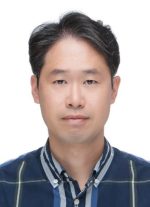Poster title
Elucidation of the Anti-Inflammatory Effect of Zanthoxylum piperitum Benn. in a Gouty Arthritis Model via Regulation of the NLRP3 Inflammasome
Presentation summary
Background :
Gout, the most common inflammatory arthritis, results from monosodium urate (MSU) crystal deposition due to high serum uric acid. Given the adverse effects of conventional therapies, safer alternativesare needed. The pro-inflammatory cytokine IL-1β is a key therapeutic target in the MSU-induced inflammatory cascade. Zanthoxylum piperitum Benn. (ZP), known for its anti-inflammatory properties, is a promising therapeutic candidate.
Methods :
The anti-inflammatory efficacy of a distilled ZP extract (deZP) was tested on LPS-stimulatedRAW264.7 and bone marrow-derived macrophages (BMDMs). RNA sequencing and network pharmacologyidentified its mechanism and target genes. An in vivo gout model was induced by injecting MSU crystals into mouse footpads. deZP’s active components were analyzed by GC-MS.
Results :
In vitro, deZP dose-dependently inhibited inflammatory cytokines. In vivo, deZP reduced pawthickness and tissue IL-1β levels. Integrated analysis revealed these anti-inflammatory effects are mediated through suppression of the NLRP3 inflammasome pathway.
Conclusion :
This study first demonstrates Zanthoxylum piperitum Benn. exerts potent anti-inflammatory effects by regulating the NLRP3 inflammasome pathway in in vitro and in vivo gout models. Findings suggest deZP isa promising phytotherapeutic agent for gout. Clinical trials are needed to validate its efficacy, dosage, andsafety. This study was supported by the National Research Foundation of Korea (NRF) (RS-2025-00519277)funded by the Korean government (Ministry of Science, ICT and Future Planning).
Conflict of interest
No

yanggs@woosuk.ac.kr
Gabsik Yang, Ph.D. is a professor whose research bridges fundamental Korean medical science with modern immunology.
Following his doctoral work at Kyung Hee University, his research at the University of Michigan Medical School advanced our understanding of innate immunity.
His current work at Woosuk University focuses on the molecular mechanisms of Korean medicinal compounds in immune regulation, contributing to the scientific validation of traditional therapeutic approaches.